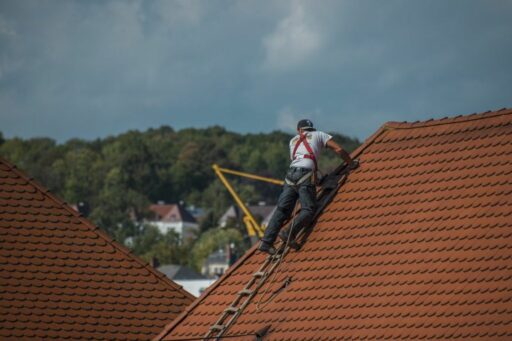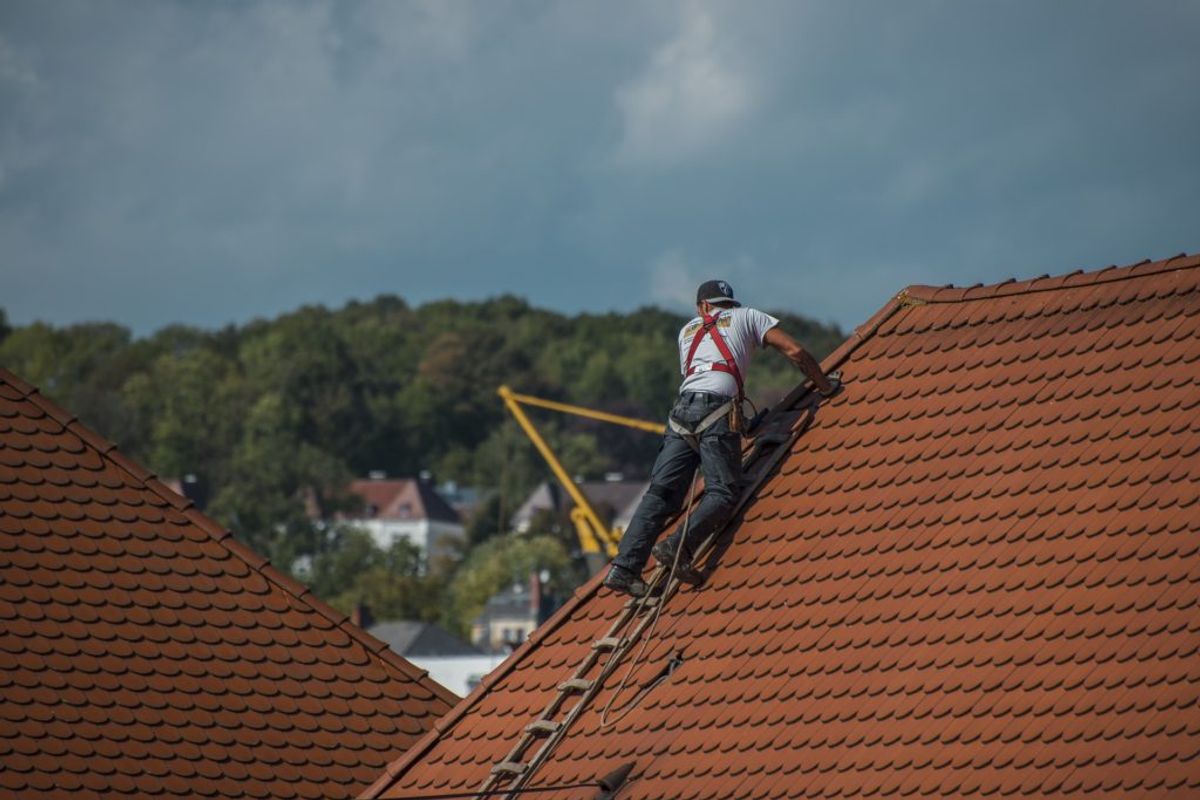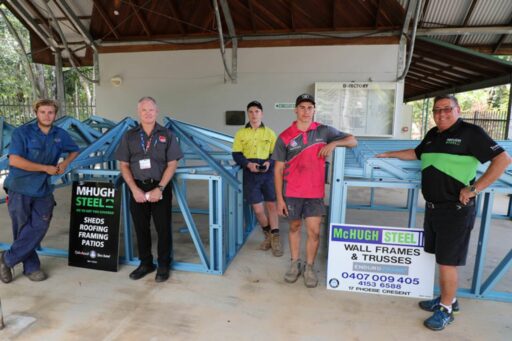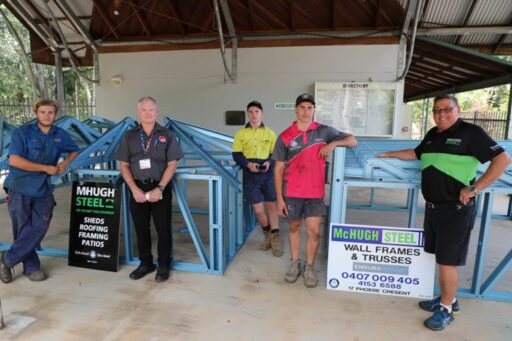When it comes to upgrading your home with a metal roof, selecting the right local contractor is paramount. Not only does metal roofing offer durability and longevity, but it also requires specific expertise for proper installation. With numerous options available, homeowners must navigate the process of finding a trustworthy and skilled professional who can deliver quality workmanship. This guide provides essential steps to ensure you choose a metal roofing contractor who will meet your needs and exceed your expectations, all while aligning with local building standards and providing a stress-free installation experience.
Key Takeaways
- Leverage local expertise to benefit from knowledge of regional building codes and weather conditions, ensuring a compliant and durable metal roof installation.
- Conduct thorough vetting of potential contractors by verifying their credentials, insurance, and work history, and by reading reviews and contacting references.
- Understand the financial aspects by comparing estimates from various contractors, discussing payment terms, and ensuring clear guarantees are in place.
- Plan your metal roofing project with a clear timeline and prepare for the installation day, considering the necessary maintenance for long-term care.
- Make an informed final decision by weighing all factors, ensuring transparent communication, and choosing a contractor that aligns with your specific needs.
Understanding the Importance of Local Expertise

The Benefits of Hiring Locally
When it comes to metal roofing, choosing a local contractor offers distinct advantages. Local contractors are deeply familiar with the area’s specific needs, from weather patterns to building codes, ensuring your roof is built to last. They are also more accessible for consultations and any follow-up work that may be required.
- Convenient Communication: Local contractors’ proximity allows for easier and more timely interactions.
- Community Investment: They depend on customer satisfaction and are likely to invest more in the success of your project.
- Fast and Flexible Scheduling: Local contractors can often schedule work more quickly and with greater flexibility.
Local contractors have a vested interest in maintaining a positive reputation within the community, which translates to a commitment to high-quality work and reliable service.
By hiring locally, you also support the local economy and benefit from contractors who are invested in creating long-lasting relationships within the community. This can lead to better references and a more personalized approach to your roofing project.
Local Knowledge of Building Codes and Weather Patterns
Choosing a metal roofing contractor with local expertise is not just about ensuring high-quality work; it’s about compliance and safety. A contractor well-versed in local building codes and regulations is crucial for the structural integrity of your roof. They can navigate the complexities of legal requirements, helping you avoid penalties and fines for non-compliance.
Local contractors also bring invaluable insights into the best materials and styles suited to your area’s climate. This knowledge is essential for a roof that can withstand local weather patterns and provide optimal protection for your home. For instance, in areas prone to heavy snowfall, a contractor would recommend roofing materials and designs that can bear the weight and facilitate snow removal.
By hiring a contractor familiar with local weather challenges, you ensure that your metal roof is not only compliant but also durable and efficient.
Understanding the local climate also means anticipating potential issues before they arise. A contractor with this foresight can implement preventative measures, such as proper ventilation to avoid condensation problems, which are common in certain climates.
Community Reputation and Reliability
When selecting a local metal roofing contractor, community reputation and reliability are paramount. A contractor with a strong local presence is often more accountable to their clients and has a vested interest in maintaining a positive image within the community. This is because their business thrives on word-of-mouth and the trust they’ve built over time.
Local contractors are typically more accessible for follow-up service or warranty issues, which can be crucial for long-term satisfaction. To gauge a contractor’s reputation, consider the following:
- Reviews and Testimonials: Look for feedback on platforms like Google My Business to assess the quality of their work and customer service.
- Consistency of Information: Verify that the contractor’s contact details are the same across various listings, such as the Better Business Bureau.
- Social Proof: Check for recent job highlights and customer experiences shared on the contractor’s website or social media.
Remember, a contractor’s reputation is not just about the number of reviews but the quality and authenticity of those endorsements. A local contractor with a keen understanding of the local climate and building regulations contributes significantly to the reliability of their work.
Vetting Potential Contractors

Verifying Credentials and Insurance
Ensuring that your metal roofing contractor is fully licensed and insured is a critical step in the vetting process. Verify the contractor’s credentials with your local licensing board and check for insurance coverage to protect against any potential liabilities. A contractor’s insurance should include both worker’s compensation and liability coverage.
- License: Confirm that the contractor holds a valid state license for roofing work.
- Insurance: Check for comprehensive liability and workers’ compensation insurance.
- Permits: Ensure that all necessary permits for roofing work are obtained.
It’s essential to safeguard your project by choosing a contractor who meets all legal and professional standards. This not only secures your investment but also ensures that the work is performed safely and to code.
Remember, a reputable contractor will readily provide proof of their credentials and insurance. Don’t hesitate to ask for documentation and, if possible, verify the information with the issuing authorities.
Reading Online Reviews and Contacting References
In the digital age, online reviews are a goldmine of information about potential metal roofing contractors. Take note of any recurring positive or negative comments to make an informed decision. Here are some key points to consider when checking for local references and reviews:
- By reading through customer reviews, you will be able to gain invaluable insights about the company’s level of expertise, professionalism, customer service, and overall performance.
- Reviews can be found on the company’s website, social media pages, and reputable review sites like Yelp and Angie’s List. Let other customers’ experiences guide you.
Remember, a comprehensive evaluation of a contractor’s history and feedback is crucial. It’s not just about the immediate cost; it’s about ensuring the longevity and value of your home.
When contacting references, ask specific questions about their experience with the contractor. Inquire about the project’s timeline, the quality of work, and the contractor’s communication and problem-solving abilities. This direct feedback can provide a clearer picture of what to expect.
Evaluating Experience and Past Work Samples
When selecting a local metal roofing contractor, assessing their past work is crucial. Request to see the contractor’s portfolio of completed projects. This will not only demonstrate their craftsmanship but also give you an idea of their experience with the type of metal roofing you’re interested in.
By examining their work samples, focus on the details:
- Look for the precision of cuts and welds
- Assess the accuracy of the overall assembly
- Note any imperfections or errors
Pay close attention to the quality of materials and the methods used during installation. This can reveal a lot about the contractor’s expertise and commitment to excellence.
Additionally, consider reaching out to previous customers to inquire about their experiences. A table of customer feedback can provide a structured overview of the contractor’s reputation:
| Customer | Satisfaction Rating | Comments |
|---|---|---|
| John Doe | 5 stars | Timely and professional |
| Jane Smith | 4 stars | High-quality materials used |
| XYZ Corp. | 3 stars | Good work but some delays |
A contractor with a proven track record and positive reviews is more likely to deliver the high-quality results you expect for your metal roofing project.
Financial Considerations and Comparisons

Understanding the Cost Factors of Metal Roofing
When considering a metal roof, it’s crucial to understand the various cost factors involved. The initial investment in a metal roof is often higher than other roofing materials, but this is offset by the roof’s longevity and energy efficiency, which can lead to significant savings over time. Here are some key cost considerations:
- Material Costs: The type of metal used (e.g., aluminum, steel, copper) will affect the overall price.
- Labor Costs: Specialized installation skills are required, potentially increasing labor expenses.
- Durability: Metal roofs are known for their durability, reducing the need for frequent replacements.
- Energy Efficiency: Reflective properties can lower cooling costs, adding to long-term savings.
- Maintenance: Minimal maintenance is required, though factors like rust prevention should be considered.
While the upfront cost may be daunting, the long-term benefits of a metal roof can outweigh the initial expense. It’s important to factor in the potential energy savings and reduced maintenance when evaluating the total cost of ownership.
Requesting detailed estimates from contractors will provide a clearer picture of the financial commitment required for a metal roof. Comparing these estimates side by side can help you make an informed decision that aligns with your budget and home improvement goals.
Requesting and Comparing Estimates
When embarking on a metal roofing project, requesting detailed estimates is a critical step. It’s not just about the bottom line; it’s about understanding what you’re paying for. Reputable contractors should offer free estimates as a standard service, and it’s wise to obtain multiple quotes to ensure a comprehensive comparison.
- Get estimates from several contractors to have a variety of options.
- Compare the details of each quote, including materials, labor costs, and warranties.
- Assess the transparency and thoroughness of the estimate to gauge the contractor’s reliability.
This comparison ensures you are getting the best value for your investment. Pay attention to any variations in materials, labor costs, and warranties provided.
Remember, the cheapest option is not always the best. Quality materials and workmanship are essential for the longevity and performance of your metal roof. Consider innovative roofing options that offer enhanced safety and efficiency, and look for patterns in feedback to gauge the contractor’s track record.
Discussing Payment Terms and Guarantees
When finalizing your metal roofing project, discussing payment terms and guarantees with your contractor is crucial. Ensure that you understand the payment schedule and any conditions that might affect the warranty. A transparent conversation about these terms can prevent misunderstandings and future issues.
Pay close attention to the warranty’s specifics, including the scope of work covered and the duration. It’s essential to know what is included in the guarantee and any responsibilities you have to maintain it.
Review the contract’s fine print carefully. Some warranties may be contingent upon the installation company also providing the roofing materials, or they might require regular maintenance to remain valid. Clarify these points before signing to avoid any surprises.
Here are some tips to guide you through this process:
- Inquire about the written guarantee and its details.
- Understand the implications of the warranty’s terms and conditions.
- Verify the fairness of the warranty’s terms, especially concerning material coverage and maintenance requirements.
- Establish a clear payment schedule within the contract.
Planning Your Metal Roofing Project

Establishing a Clear Timeline
When planning your metal roofing project, establishing a clear timeline is crucial for ensuring that the work is completed efficiently and to your satisfaction. A well-defined timeline sets expectations for both you and the contractor, and helps to avoid any misunderstandings or delays. It’s important to discuss the scope of work in detail with your contractor and to obtain a detailed project proposal that includes a timeline from start to finish. This proposal should outline key milestones and deadlines, such as the initial consultation, roof inspection, start of installation, and project completion.
A clear and comprehensive project plan ensures transparency and helps both parties stay on track throughout the roofing project.
Here are some steps to consider when establishing your project timeline:
- Request a detailed project proposal and timeline for review and approval.
- Ensure the timeline includes all key phases of the project, from the initial consultation to the final inspection.
- Discuss any potential challenges that could affect the timeline, such as weather conditions or material availability.
- Agree on a communication plan to stay informed about the project’s progress and any changes to the schedule.
Preparing for Installation Day
As the installation day approaches, preparing your property is crucial to ensure a smooth process. Begin by clearing the area around your home to provide contractors with unobstructed access. This includes removing vehicles, patio furniture, and any loose items that could hinder movement or pose safety risks.
Inside your home, safeguard your belongings from potential vibrations during the installation. Secure loose items on shelves and walls, and cover furniture to protect from dust. It’s also considerate to notify your neighbors about the upcoming work, as it may affect them.
On the technical side, confirm with your contractor that all necessary roofing accessories are ready for installation. This includes flashing, vents, and gutters, which are essential for a functional and long-lasting roof. Here’s a quick checklist for the day before the contractors arrive:
- Clear surrounding area
- Prepare the interior
- Notify neighbors
- Confirm accessory readiness
Remember, a well-prepared home minimizes disruptions and helps the installation team work efficiently.
Post-Installation Maintenance and Care
After the successful installation of your metal roof, it’s crucial to establish a maintenance routine to ensure its longevity and performance. Regular inspections are key to identifying any issues early on. Perform visual inspections of your metal roof at least twice a year, ideally in the spring and fall. Look for signs of damage or loose components that may need attention.
Proper maintenance not only extends the lifespan of your roof but also safeguards your home against the elements.
In addition to inspections, consider these maintenance tips:
- Treat moss, algae, or lichen promptly to prevent moisture retention and material degradation.
- Trim overhanging branches to reduce the risk of damage from falling limbs and debris accumulation.
- Ensure your attic has proper ventilation and insulation to prevent heat and moisture buildup, which can compromise your roof’s integrity.
Remember, while some maintenance tasks can be performed by homeowners, others should be left to professionals. Always prioritize safety and consider hiring a certified professional for complex or risky tasks.
Making the Final Decision

Weighing the Pros and Cons
When considering a metal roofing contractor, it’s crucial to weigh the pros and cons of each option. Metal roofs, as noted by ‘This Old House’, can last between 40 to 70 years, offering remarkable durability with materials like tin, aluminum, zinc, and steel. However, the decision between DIY and professional installation is not to be taken lightly.
-
DIY Installation Pros:
- Cost Savings: Potentially lower upfront costs due to absence of labor charges.
- Personal Satisfaction: The fulfillment of completing a project on your own.
- Customization and Control: Full authority over every aspect of the project.
- Learning Experience: Opportunity to acquire new skills and knowledge.
-
DIY Installation Cons:
- Complexity: Roofing systems are intricate, requiring harmonious component integration.
- Risk of Voiding Warranties: Manufacturer’s warranties may be invalidated by DIY work.
- Safety Risks: Significant danger of falls without proper safety equipment or expertise.
- Insurance Issues: Potential lack of home insurance coverage for DIY-related damages.
For most homeowners, the expertise, safety, and warranty protection offered by professional contractors outweigh the benefits of DIY. The complexity and potential for costly mistakes are considerable factors that tilt the balance in favor of professional installation.
Ensuring Clear Communication and Contracts
Clear communication is the cornerstone of any successful project. Ensure that all terms, including the scope of work, payment schedule, and warranty details, are explicitly outlined in the contract. This not only establishes a professional relationship but also protects both parties in case of disputes.
- Pay close attention to conditions that may void the warranty.
- Be clear on the payment schedule and any milestones that trigger payments.
- Assess the contractor’s communication skills; they should listen to your concerns and be able to convey information clearly.
- Request a detailed written estimate and a formal contract before work begins.
A reliable roofer will transparently communicate all terms to establish trust and ensure a smooth roofing process. This diligence can save you from potential issues in the future.
Regular communication throughout the project is essential. Keep a project file for all documentation and conduct a final inspection upon completion to ensure all work meets your satisfaction. Understanding the specifics of what is covered by the warranty and its duration is also vital.
Choosing the Contractor That Best Fits Your Needs
After careful consideration of all factors, it’s time to make the final choice. Selecting the contractor that aligns with your priorities is essential for a successful metal roofing project. Consider their expertise, past work, and your personal comfort level with their team.
- Evaluate the contractor’s communication style.
- Ensure their work ethic and business practices match your expectations.
- Confirm that they provide a comprehensive warranty.
Remember, a good contractor will not only offer a fair price but also ensure transparency throughout the process. They should be willing to address all your concerns and provide clear answers.
Ultimately, trust your instincts and choose a contractor who you believe will deliver the best results for your home. The right contractor will not only meet your needs but also provide peace of mind for years to come.
Conclusion
Choosing the right local metal roofing contractor is a significant decision that can impact the longevity and performance of your roof. By conducting thorough research, verifying credentials and insurance, and seeking out references and reviews, you can make an informed choice. Remember to compare estimates from multiple contractors to ensure you’re getting a fair deal. With the right preparation and knowledge, you can find a skilled installer who will provide a durable, high-quality metal roof that will protect your home for years to come. Take the time to select a contractor who not only offers expertise and experience but also prioritizes customer satisfaction and adherence to local building codes. Your efforts will pay off in the form of a hassle-free installation and the peace of mind that comes with a well-constructed metal roof.
Frequently Asked Questions
Why is hiring a local metal roofing contractor beneficial?
Local contractors have a deeper understanding of regional building codes and weather patterns, which ensures your metal roof is installed correctly and designed to withstand local conditions. They also have a reputation within the community that they strive to uphold, providing an added layer of reliability.
What should I look for when vetting potential metal roofing contractors?
You should verify their credentials, including licenses and insurance, read online reviews, contact references to hear about past clients’ experiences, and evaluate their experience by reviewing samples of their past work.
How do I understand the cost factors of metal roofing?
The cost of metal roofing is influenced by the material type, roof size, design complexity, and labor. It’s important to request detailed estimates from multiple contractors to understand and compare the costs involved.
What is important to establish with a contractor when planning a metal roofing project?
It’s crucial to establish a clear timeline for the project, prepare for the installation day logistics, and discuss post-installation maintenance and care to ensure the longevity of your metal roof.
How do I make the final decision on which metal roofing contractor to hire?
Weigh the pros and cons of each contractor, ensure clear communication and a comprehensive contract, and choose the one that best fits your needs, budget, and has demonstrated the highest level of expertise and reliability.
Is it important to get multiple estimates for my metal roofing project?
Yes, obtaining free estimates from at least three different contractors is recommended. This allows you to compare prices and services, ensuring you get the best value for your investment.





